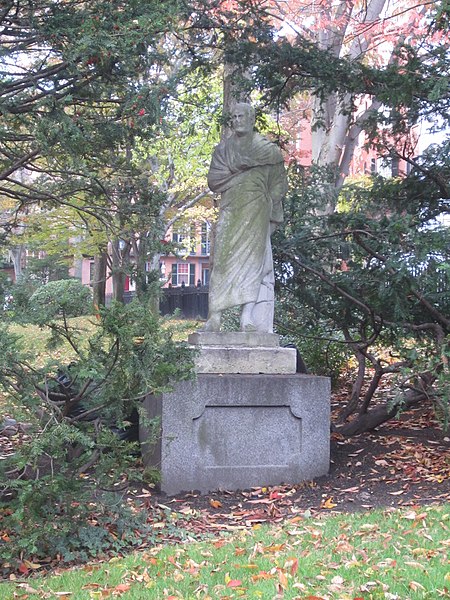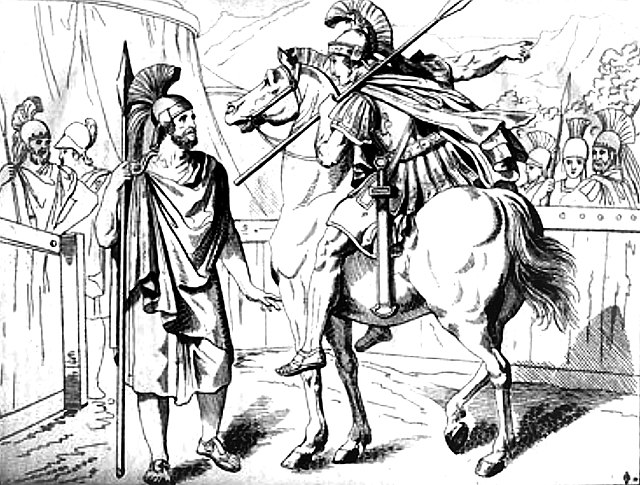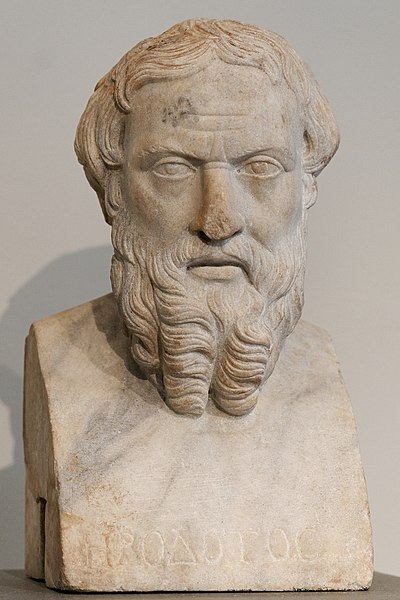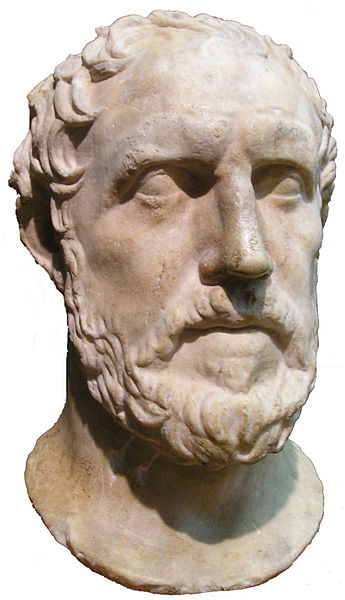Aristides was an ancient Athenian statesman. Nicknamed "the Just", he flourished at the beginning of Athens' Classical period and is remembered for his generalship in the Persian War. The ancient historian Herodotus cited him as "the best and most honourable man in Athens", and he received similarly reverent treatment in Plato's Socratic dialogues.
Statue of Aristides
An ostrakon bearing the name "Aristeides [son] of Lysimachus", displayed in the Ancient Agora Museum in Athens
Aristides and the citizens
Aristides warned by Alexander I of Macedon of the impending Persian attack at the Battle of Plataea, 479 BC
The Greco-Persian Wars were a series of conflicts between the Achaemenid Empire and Greek city-states that started in 499 BC and lasted until 449 BC. The collision between the fractious political world of the Greeks and the enormous empire of the Persians began when Cyrus the Great conquered the Greek-inhabited region of Ionia in 547 BC. Struggling to control the independent-minded cities of Ionia, the Persians appointed tyrants to rule each of them. This would prove to be the source of much trouble for the Greeks and Persians alike.
Combat between a Persian soldier (left) and a Greek hoplite (right), depicted on a kylix at the National Archaeological Museum of Athens
Herodotus, the main historical source for this conflict
Thucydides continued Herodotus's narrative
Persian and Median Immortals in ceremonial dress, bas-relief in Persepolis


![An ostrakon bearing the name "Aristeides [son] of Lysimachus", displayed in the Ancient Agora Museum in Athens](https://upload.wikimedia.org/wikipedia/commons/thumb/d/db/20_-_Sto%C3%A0_of_Attalus_Museum_-_Ostracism_against_Aristeides_%28483_BC%29_-_Photo_by_Giovanni_Dall%27Orto%2C_Nov_9_2009.jpg/640px-20_-_Sto%C3%A0_of_Attalus_Museum_-_Ostracism_against_Aristeides_%28483_BC%29_-_Photo_by_Giovanni_Dall%27Orto%2C_Nov_9_2009.jpg)





